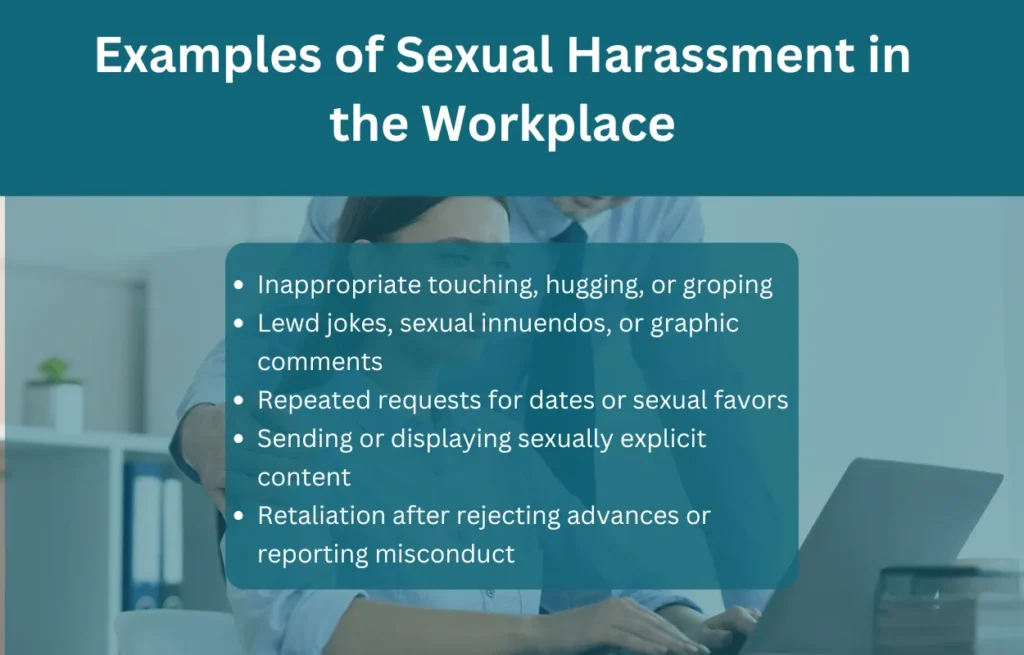Oregon Sexual Harassment: Know Your Rights in the Workplace
Sexual harassment in the workplace isn’t just inappropriate it’s illegal. Yet, despite clear legal protections, many Oregon employees still experience unwelcome conduct that creates a hostile, intimidating, or abusive work environment. Whether you’re being harassed or retaliated against for speaking up, it’s crucial to understand your rights under Oregon sexual harassment laws.
At Meyer Employment Law, we advocate exclusively for employees across Oregon, helping victims of workplace harassment assert their rights and seek justice. If you’ve been affected by sexual harassment at work, contact our office for a confidential consultation.
Also Read:
Bullying in the Workplace in Oregon
Navigating Hostile Work Environments
How To Handle Unfair Treatment At Work
What Is Considered Sexual Harassment in Oregon?
Sexual harassment is defined as unwelcome sexual advances, requests for sexual favors, or other verbal or physical conduct of a sexual nature that:
- Interferes with your work performance
- Creates an intimidating, hostile, or offensive work environment
Under both state and federal law, sexual harassment is a form of unlawful discrimination based on sex. In Oregon, these protections apply to all employees regardless of job title, industry, or company size.
Two Main Types of Sexual Harassment
- Quid Pro Quo Harassment
Occurs when a supervisor or person in authority demands sexual favors in exchange for employment benefits like promotions, raises, or continued employment. - Hostile Work Environment
Involves repeated and severe unwanted behavior like sexual jokes, comments, touching, or explicit emails that create a toxic work setting.
Even a single incident can qualify as harassment if it’s severe enough.

Oregon Sexual Harassment Laws: Key Protections
Oregon has strong legal protections in place to prevent and address workplace harassment. Important statutes include:
- ORS 659A.030: Prohibits sexual harassment and other forms of workplace discrimination
- Senate Bill 726 (2019): Also known as the “Oregon Workplace Fairness Act,” this law expanded worker protections and limits the use of non-disclosure agreements (NDAs) in harassment cases
Key Provisions of the Workplace Fairness Act
- Extended time to file claims: Victims now have up to 5 years (formerly 1 year) to file a harassment or discrimination complaint with BOLI or in court
- Restrictions on NDAs: Employers cannot force employees to remain silent about harassment or discrimination as a condition of settlement, unless requested by the employee
- Mandatory written policies: Employers must adopt anti-harassment policies and distribute them to all workers
These updates reflect Oregon’s commitment to supporting victims and holding employers accountable.

Examples of Sexual Harassment in the Workplace
Sexual harassment can take many forms. Some of the most common examples include:
- Inappropriate touching, hugging, or groping
- Lewd jokes, sexual innuendos, or graphic comments
- Repeated requests for dates or sexual favors
- Sending or displaying sexually explicit content
- Retaliation after rejecting advances or reporting misconduct
Remember: The harasser can be anyone in the workplace: a supervisor, coworker, client, or even a vendor.
What to Do If You’re Experiencing Sexual Harassment at Work
If you believe you’re experiencing sexual harassment in your Oregon workplace, take the following steps to protect your rights:
- Document Everything
Keep detailed records of what happened, including dates, times, names, locations, and any witnesses. - Follow Company Policy
Review your company’s harassment policy and file a complaint through the internal reporting system or HR department. - File a Complaint with BOLI or the EEOC
Oregon employees can file complaints with the Oregon Bureau of Laborand Industries (BOLI) or the Equal Employment Opportunity Commission (EEOC). You typically have up to 5 years under state law to file with BOLI. - Consult an Employment Attorney
An experienced attorney can help evaluate your case, preserve your rights, and represent you in negotiations or legal proceedings.
At Meyer Employment Law, we help clients navigate these steps with care, strategy, and unwavering advocacy.
You Don’t Have to Tolerate Harassment
Workplace harassment can take a serious toll on your health, career, and peace of mind. But you don’t have to endure it. Oregon law is on your side and so are we.
Meyer Employment Law is committed to helping workers across Oregon fight back against sexual harassment, retaliation, and other unlawful treatment. If you’ve experienced misconduct at work, we can help you pursue justice and create safer workplaces for everyone.



